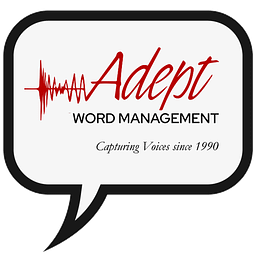Here’s what Merriam Webster says about the quotative:
quotative
noun
quo·ta·tive ˈkwō-tə-tiv
: a function word used in informal contexts to introduce a quotation
“like” is a quotative in “He was like, ‘Oh, no! not again!'”
*************************************************************************************************************
SUMMARY: Since people say “like” a lot in spoken English; Adept uses a comma as recommended by Merriam Webster; The Chicago Manual of Style doesn’t seem to address the quotative.
In most cases, LIKE is a preposition, and it’s frequently characterized as a comparison marker. How about usages like “I was like, scared!”
In his paper Quotative LIKE in contemporary non standard English, Graham Roger says that like is used to indicate comparison or similarity, but he also mentions LIKE as a marker of approximation:
More familiarly, like is used as a marker of approximation, in premodifying position:1
(3) So I’m paying like a hundred and twenty pound a month less. BNC [S]
Or in postmodifying position, in certain varieties:
(4) […] all you got ta do is put the screws in those locks you know, like. BNC
Roger specifically mentions that there is no proscribed punctuation: Quotative like is limited essentially to a familiar register of language (or written imitations thereof) and there is no clear punctuation convention available to the transcriber.
He does talk about like followed by interjections, expletives, or nonverbal sequences:
Furthermore, quotative like is not infrequently followed by interjections, explectives [sic] or non verbal [sic] sequences which do not conceivably represent reported speech, but stand emblematically for an emotion, an attitude etc.:
(10) Even when I heard the title for the film project, I was like, “Ooh…”
(11) But I remember she stuck up for me when this guy was being aggressive. She was like, “Hey!”
(12) The worst thing I did was look inside a closet in an ex-boyfriend’s house. I was looking for something so I opened up the door, and it was a closet of ex-girlfriends. All the mementos, journals, love letters, everything. It was like, “Aaahhh!” I closed it immediately.
This brings us back to: How about usages like “I was like, scared!” Here, Roger proposes
Non stereotypical uses
It might be objected that, while the examples studied so far involve emblematic sequences used to evoke certain stereotyped situations, other examples of quotative like appear to represent passages of speech reported verbatim. This is arguably the case in (7) above, or in (18) and (19):
(7) He went, you’re just a drop-out, you’re just sponging off the government. I was like, shut up, Ryan. He’s like, I know your sort. BNC [S]
(18) NICE: I know I’m happy because she told me I was happy. I wake up, I’m like — she’s like, How you feeling? I’m like, I’m a little down. [Emphasis mine] She’s like, No you’re not. I’m like, That’s good.’ COCA [S]
CONCLUSIONS FOR TRANSCRIPTION:
Like is used as a similarity marker. I slept like a baby.
Specifically, Graham Roger suggests that Like is used to represent passages of speech reported verbatim: “I was like, shut up, Ryan.”
Like is also used as a quotative, to informally introduce a quotation. “After I accused her, she was like, ‘Oh no, I didn’t.’”
Graham Roger describes Like as a marker of approximation. I was paying like $200 a month.
Perhaps most interestingly to the transcriptionist interested in capturing the spoken word, Roger says:
In this respect, I think it unquestionable that the use of quotative like projects a certain image of the speaker, contributing something extra to the meaning of the expression. The question is whether this sociolinguistic meaning should enter into the form-value relationship we posited in part 2, and if so, where.

